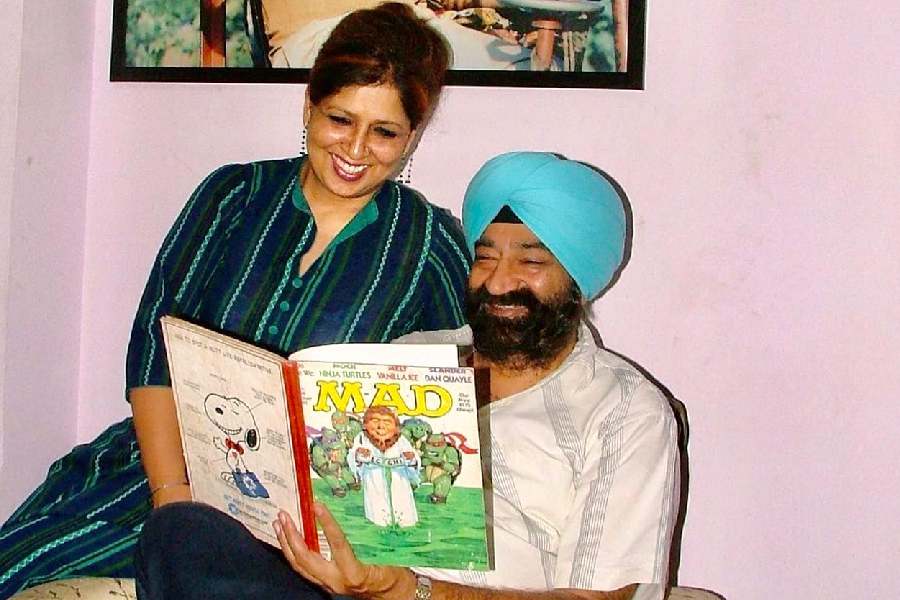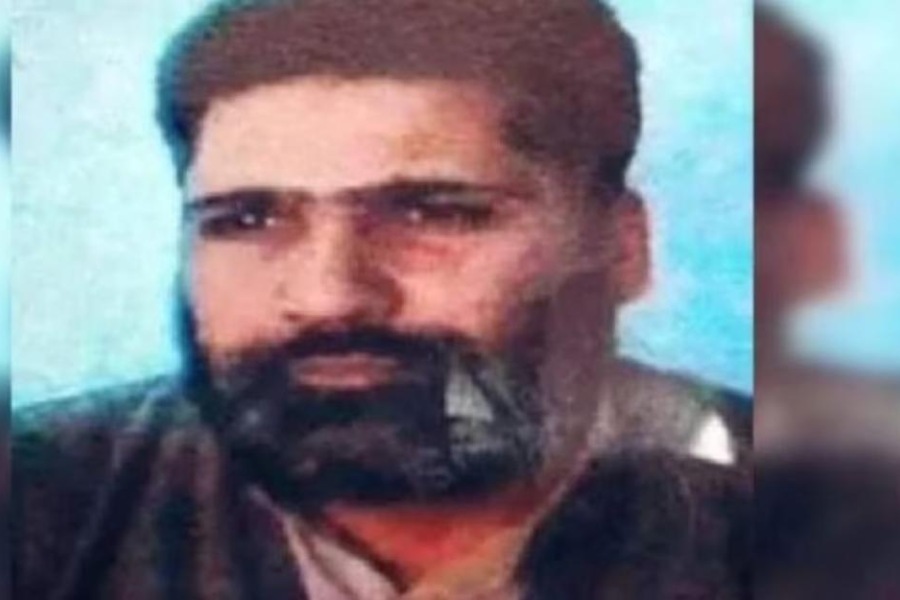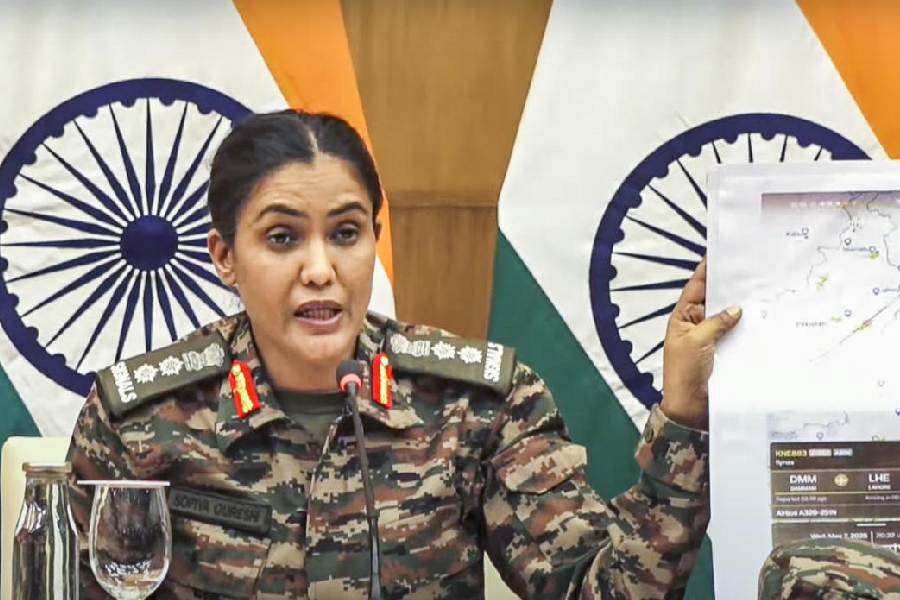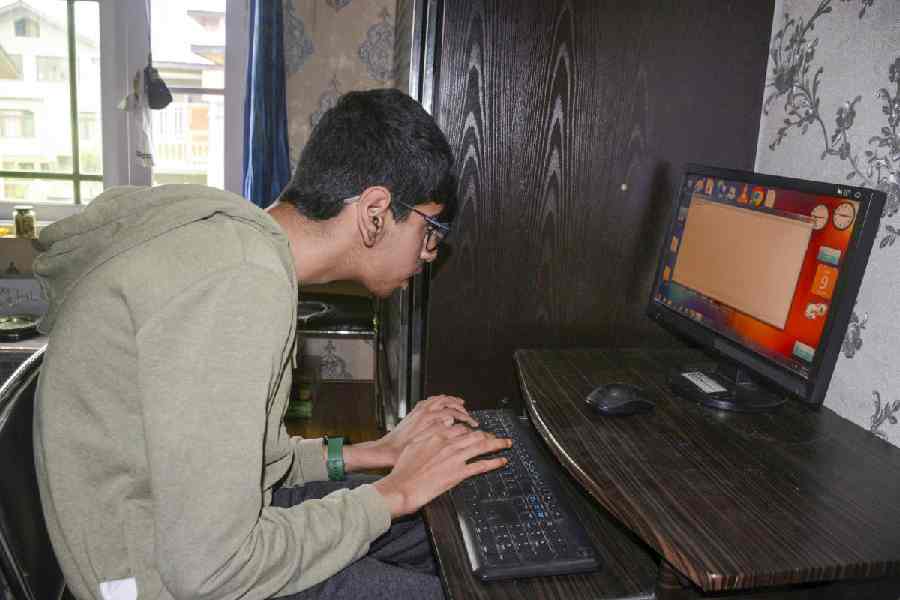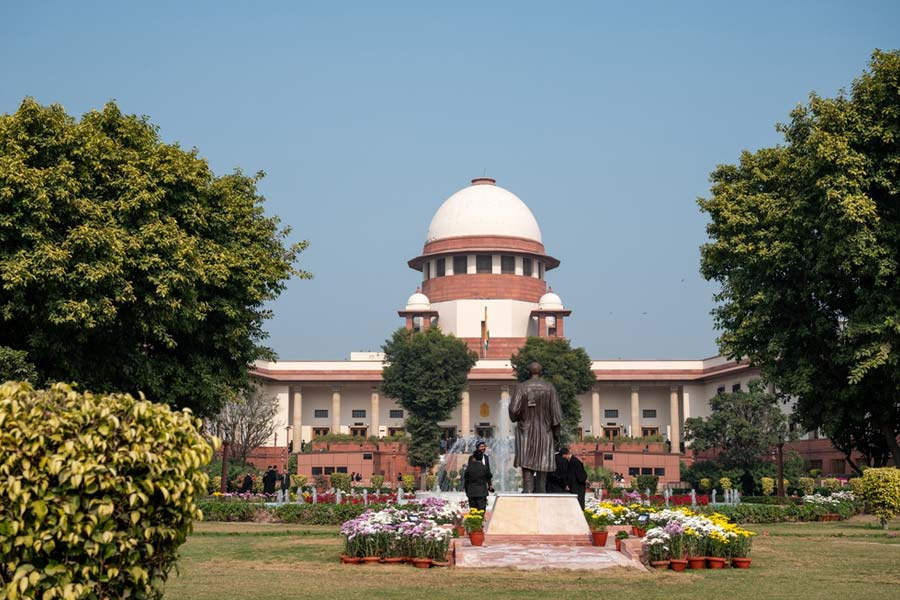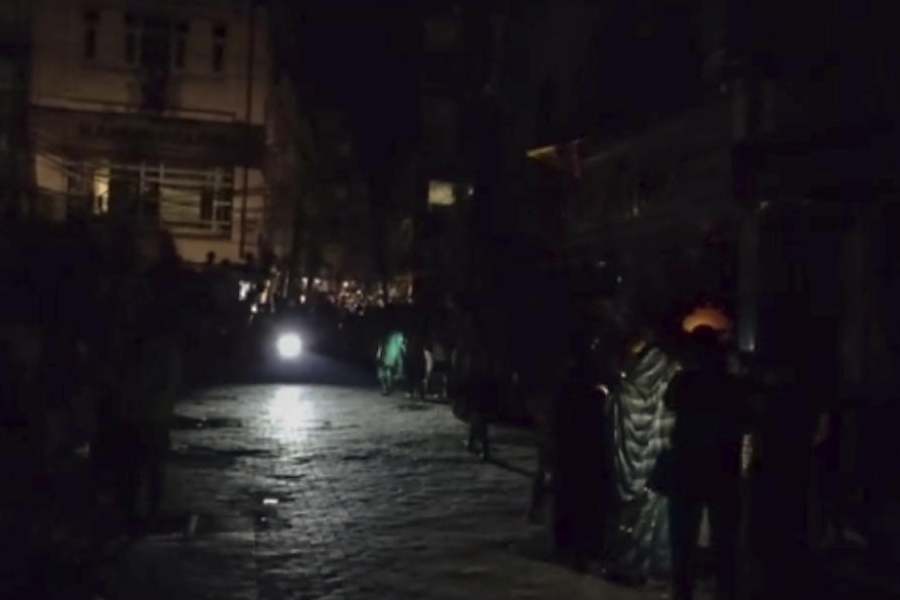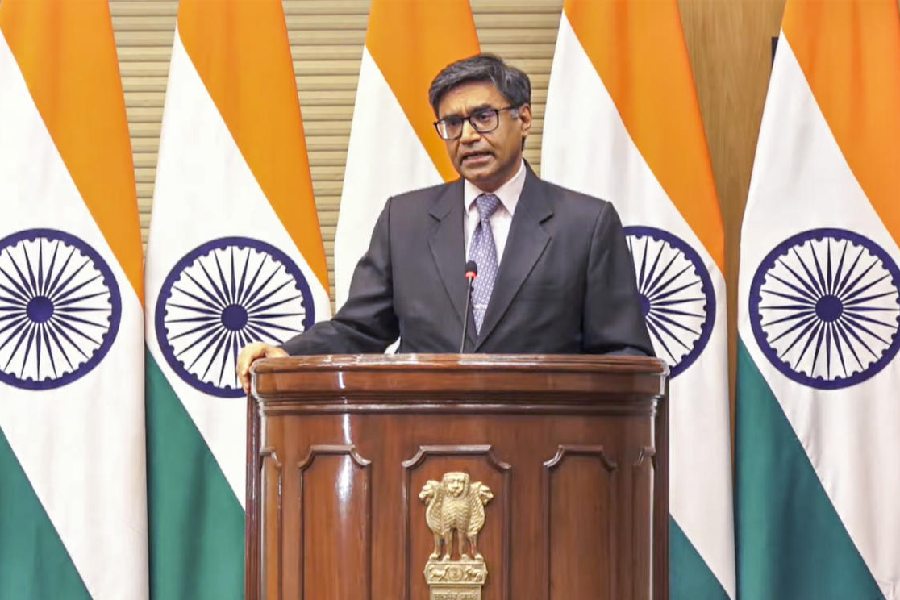 |
| Umanand Dowerah (second from right) shows the first Assamese record to visitors at the Gramophone Record Museum in Jorhat. Telegraph picture |
Jorhat, July 17: Prafulla Chandra Baruah’s mellifluous voice singing Phulu phulile, Jonai hahin le, Bahin e dhorile taan in the first Assamese gramophone record (1924) will never be lost to posterity though the gramophone record itself has become a thing of the past.
Housed in the Gramophone Record Museum, which boasts of a collection of more than 5,000 records, at Moran in Dibrugarh district, this first and only extant record is being digitised along with other rare Assamese songs and dramas.
Umanand Dowerah, who collected the records and set up the museum, said this would immortalise the songs of the golden era though gramophone players had become obsolete.
“As the gramophone player passes into history, my collection, which comprises the first Assamese record by Prafulla Baruah, Bhupen Hazarika’s songs which he sang when he was 10 and 11 years old, songs by Jyoti Prasad Agarwala, Bishnu Rabha and a host of early dramas, among others, will never be heard again. We will lose a national asset unless they are compiled in digital form, be it on computer or a disc,” he said.
Dowerah said his nephew and assistant, Tezoswie Dowerah, was digitising the records on compact discs (CDs) though the process was initially slow as the noise created by gramophone player had to be removed before being transferred to CDs.
Dowerah, whose passion is singing and songs, began his collection in 1993 at the age of 48 because he found the process of sending request letters to All India Radio for playing old songs in programmes tedious as the song was played almost a month after sending the letter.
“I decided that by collecting gramophone records and playing them at home, I could listen to the golden oldies whenever I wanted,” he added.
In 2003, he displayed his collection at Srimanta Sankaradeva Kalakshetra in Guwahati. It was here that Bhupen Hazarika encouraged him to open a museum at Moran instead of giving up his collection to the Kalakshetra as sought by them.
“Unfortunately Hazarika could not inaugurate the museum as promised because he began ailing soon after. But his sister-in-law, late Jayanta Hazarika’s wife, Monisha Hazarika, did the honours in 2007,” he said.
The latest addition to his collection was made by Purabi Dutta Das who, on July 8, donated 400 records of Assamese, Bengali and Hindi songs belonging to her grandfather Nilambar Dutta, founder of Sarojini tea estate, an 8mm silent movie projector and a screen, a hand cranked player of the 1920s and a 1950s changing player in which 11 records can be played at a time.
Among Dowerah’s collection of Assamese songs are those of Phani Sharma, Siba Prasad Bhattacharya, Prakash Chandra Hazarika, Girija Baruah, Prafulla Bala Barua, Priyabala Rabha (first wife of Bishnu Rabha), Charu Bordoloi, Kumari Rani Pal, Sabiruddin Ahmed Bandana Baruah, Dilip Sharma, Arati Sharma, Mrinal Mazumdar, Kamal Choudhury. His Bengali collection comprises songs sung by Hemanta Mukherjee, Shyamal Mitra and Arati Mukherjee.
Among the plays are Joymoti, Sunit Konwari, Jerengar Sati, Manumati, Lachit (all in 1936), Beola (1937), Abaxor Xaap and Bihuwati (1938), Bordoisila (1940) and Joy Jatra (1941).


